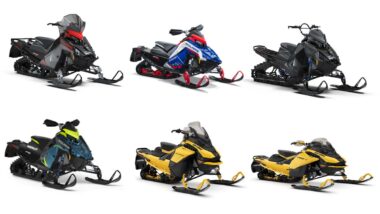Top Class Actions’s website and social media posts use affiliate links. If you make a purchase using such links, we may receive a commission, but it will not result in any additional charges to you. Please review our Affiliate Link Disclosure for more information.
Google LLC has been hit with another Canada class action lawsuit accusing it of misleading users about the privacy protections provided when they use “incognito mode” to browse the internet.
Plaintiff Brian Reid of British Columbia says that Google “has deliberately intercepted, collected, recorded and exploited the personal information” of individuals who use “private browsing mode” or “incognito mode” on their web browsers.
According to the Google incognito mode class action lawsuit in Canada, Google released the first version of its private browsing mode for its Google Chrome web browser around 2008. This incognito mode reportedly allows web users to search for websites and visit them without being tracked by the websites they visit.
Private browsing has also been made available for other popular web browsers, including Firefox, Safari, and Edge.
When a Google user selects incognito mode to browse the internet, a confirmation screen appears and informs the user that Chrome won’t save the user’s browsing history, cookies and site data, or information entered on forms. The screen informs users that their web activity might be visible to the websites visited, their internet service provider, or to their school or employer.
“Despite representing to users of Google’s services (including its Chrome Browser and search) that they are in control of their own personal information when in private browsing mode, through an assortment of covert tracking techniques hidden from users, Google surreptitiously documents and exploits intimate details of a person’s life, interests and internet usage,” Brian alleges in the Canada class action lawsuit against Google.
“Google does so whether or not a person has an account with Google.”
Brian alleges that Google’s “clandestine practices” are intentional violations of users’ privacy and are meant to enrich Google through advertising sales.
According to the Google incognito mode class action lawsuit in Canada, Google’s alleged misrepresentation relies on several mechanisms that Google makes available to third-party websites, including Google Analytics, Google Ad Manager, Google’s “Sign in with Google” button, and embedding digital pixels into a website’s code.
Google Analytics is reportedly used in more than 70% of websites and provides information to website operators about website traffic, demographics, frequency and browsing habits. Google Ad Manager, which is also reportedly used in more than 70% of websites, embeds Google code into a website’s code, allowing Google to display advertisements alongside the website’s actual content.
The “Sign in with Google” button similarly facilitates data collection by tracking users when a webpage loads, even if they don’t click the button, according to the Google private browsing class action lawsuit.
Further, the digital pixels reportedly allow Google and approved third-parties to track and measure consumer activity. The only way to block a tracking pixel is to adjust the internet browser settings to not load any images, the Google incognito mode class action lawsuit in Canada says.
The Canada class action lawsuit alleges that Google designed these services in such a way that a user’s IP address, URL address, the websites visited and other personal information will be sent to Google, regardless of the web browser used. This information may be sufficient to establish a browser fingerprint with enough information to identify a single individual, Brian alleges.
Google can then match the digital fingerprint with other data it has about an individual, and compile a “comprehensive biographical portrait” of the user without their knowledge or consent.
Although Google’s privacy policy assures users they can control the information they share with Google, there is reportedly no reference to the fact that Google can view an individual’s personal information when using incognito mode.
Brian says he has used Google’s incognito mode while not logged into a Google account. According to the Google private browsing class action lawsuit, he was unaware that Google would track his activity while he used incognito mode to browse the internet.
He filed the Google incognito mode class action lawsuit in Canada on behalf of himself and all Canadians who do not reside in Quebec who, since 2008, used a web browser in private browsing or incognito mode while they were not logged in to a Google account on that web browser.
He also seeks to represent a subclass of Class Members who have Google accounts or use Google services.
Google was recently hit with a similar class action lawsuit seeking compensation for Quebec residents who used Google’s incognito mode while browsing the web.
U.S. residents have also taken issue with Google’s alleged misrepresentations about its incognito mode. Google is currently facing an incognito mode class action lawsuit in California federal court.
Do you use incognito mode when browsing the internet? What do you think about the Google incognito mode class action lawsuit? Tell us your thoughts in the comment section below!
Brian is represented by Anthony A. Vecchio of Slater Vecchio LLP.
The Google Incognito Mode Class Action Lawsuit is Brian Reid v. Google LLC, Case No. S-207444, in the Supreme Court of British Columbia, Canada.
Read More Lawsuit & Settlement News:
Google Advertising Class Action Lawsuit Claims The Tech Giant Superimposed Ads
Google Hit With Class Action Lawsuit Over Not So Private Incognito Mode
Long Term Disability Lawyer | Insurance Claim Denial Help
Canada Roundup Glyphosate Cancer Class Action Lawsuit Investigation
ATTORNEY ADVERTISING
Top Class Actions is a Proud Member of the American Bar Association
LEGAL INFORMATION IS NOT LEGAL ADVICE
Top Class Actions Legal Statement
©2008 – 2024 Top Class Actions® LLC
Various Trademarks held by their respective owners
This website is not intended for viewing or usage by European Union citizens.



















12 thoughts onGoogle Incognito Mode Questioned in Certified Class Action Lawsuit
How do we get involved? If they’re straight up lying about what incognito mode does for the user, then people deserve compensation.
I’m interested to know how to include myself.